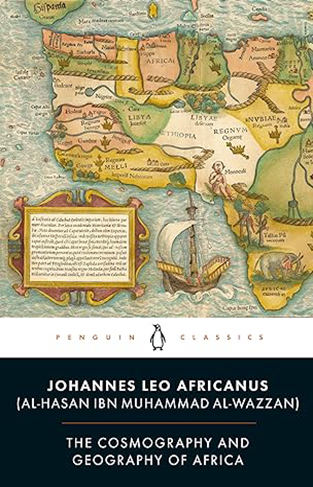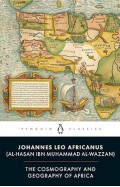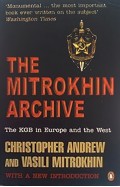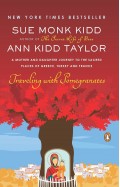The Cosmography and Geography of Africa
By: Leo Africanus
-
Rs 2,970.75
- Rs 3,495.00
- 15%
You save Rs 524.25.
Due to constant currency fluctuation, prices are subject to change with or without notice.
The first new translation in over 400 years of one of the great works of the Renaissance: an African diplomat's guide to Africa.
In 1518, al-Hasan ibn Muhammad al-Wazzan, a Moroccan diplomat, was seized by pirates while travelling in the Mediterranean. Brought before Pope Leo X, he was persuaded to convert to Christianity, in the process taking the name Johannes Leo Africanus. Acclaimed in the papal court for his learning, Leo would in time write his masterpiece, The Cosmography and the Geography of Africa.
The Cosmography was the first book about Africa, and the first book written by a modern African, to reach print. It would remain central to the European understanding of Africa for over 300 years, with its descriptions of lands, cities and peoples giving a singular vision of the vast continent: its urban bustle and rural desolation, its culture, commerce and warfare, its magical herbs and strange animals.
Yet it is not a mere catalogue of the exotic: Leo also invited his readers to acknowledge the similarity and relevance of these lands to the time and place they knew. For this reason, The Cosmography and Geography of Africa remains significant to our understanding not only of Africa, but of the world and how we perceive it.
The first new translation in over 400 years of one of the great works of the Renaissance: an African diplomat's guide to Africa.
In 1518, al-Hasan ibn Muhammad al-Wazzan, a Moroccan diplomat, was seized by pirates while travelling in the Mediterranean. Brought before Pope Leo X, he was persuaded to convert to Christianity, in the process taking the name Johannes Leo Africanus. Acclaimed in the papal court for his learning, Leo would in time write his masterpiece, The Cosmography and the Geography of Africa.
The Cosmography was the first book about Africa, and the first book written by a modern African, to reach print. It would remain central to the European understanding of Africa for over 300 years, with its descriptions of lands, cities and peoples giving a singular vision of the vast continent: its urban bustle and rural desolation, its culture, commerce and warfare, its magical herbs and strange animals.
Yet it is not a mere catalogue of the exotic: Leo also invited his readers to acknowledge the similarity and relevance of these lands to the time and place they knew. For this reason, The Cosmography and Geography of Africa remains significant to our understanding not only of Africa, but of the world and how we perceive it.
The Cosmography and Geography of Africa
By: Leo Africanus
Rs 2,970.75 Rs 3,495.00 Ex Tax :Rs 2,970.75
Zubin Mehta: A Musical Journey (An Authorized Biography)
By: VOID - Bakhtiar K. Dadabhoy
Rs 525.00 Rs 1,050.00 Ex Tax :Rs 525.00
Barbarossa: How Hitler Lost the War
By: Jonathan Dimbleby
Rs 2,800.75 Rs 3,295.00 Ex Tax :Rs 2,800.75
To Save An Army - The Stalingrad Airlift
By: Robert Forsyth
Rs 5,010.75 Rs 5,895.00 Ex Tax :Rs 5,010.75
The Psychic Workbook - A Beginner's Guide to Activities and Exercises to Unlock Your Psychic Skills
By: Mystic Michaela
Rs 2,471.25 Rs 3,295.00 Ex Tax :Rs 2,471.25
The Mitrokhin Archive - The KGB in Europe and the West
By: Christopher Andrew
Rs 90.00 Rs 600.00 Ex Tax :Rs 90.00
Traveling With Pomegranates A Mother And Daughter Journey To The Sacred Places Of Greece Turkey And France
By: Sue Monk Kidd
Rs 1,165.50 Rs 1,295.00 Ex Tax :Rs 1,165.50
The Vampire Diaries Stefans Diaries 3 The Craving
By: L. J. Smith
Rs 1,946.25 Rs 2,595.00 Ex Tax :Rs 1,946.25
Barbarossa: How Hitler Lost the War
By: Jonathan Dimbleby
Rs 2,800.75 Rs 3,295.00 Ex Tax :Rs 2,800.75
To Save An Army - The Stalingrad Airlift
By: Robert Forsyth
Rs 5,010.75 Rs 5,895.00 Ex Tax :Rs 5,010.75
The Psychic Workbook - A Beginner's Guide to Activities and Exercises to Unlock Your Psychic Skills
By: Mystic Michaela
Rs 2,471.25 Rs 3,295.00 Ex Tax :Rs 2,471.25
The Mitrokhin Archive - The KGB in Europe and the West
By: Christopher Andrew
Rs 90.00 Rs 600.00 Ex Tax :Rs 90.00
No recently viewed books available at the moment.
Zubin Mehta: A Musical Journey (An Authorized Biography)
By: VOID - Bakhtiar K. Dadabhoy
Rs 525.00 Rs 1,050.00 Ex Tax :Rs 525.00
The Cosmography and Geography of Africa
By: Leo Africanus
Rs 2,970.75 Rs 3,495.00 Ex Tax :Rs 2,970.75
Barbarossa: How Hitler Lost the War
By: Jonathan Dimbleby
Rs 2,800.75 Rs 3,295.00 Ex Tax :Rs 2,800.75
To Save An Army - The Stalingrad Airlift
By: Robert Forsyth
Rs 5,010.75 Rs 5,895.00 Ex Tax :Rs 5,010.75
The Psychic Workbook - A Beginner's Guide to Activities and Exercises to Unlock Your Psychic Skills
By: Mystic Michaela
Rs 2,471.25 Rs 3,295.00 Ex Tax :Rs 2,471.25
The Mitrokhin Archive - The KGB in Europe and the West
By: Christopher Andrew
Rs 90.00 Rs 600.00 Ex Tax :Rs 90.00













-120x187.jpg?q6)



















